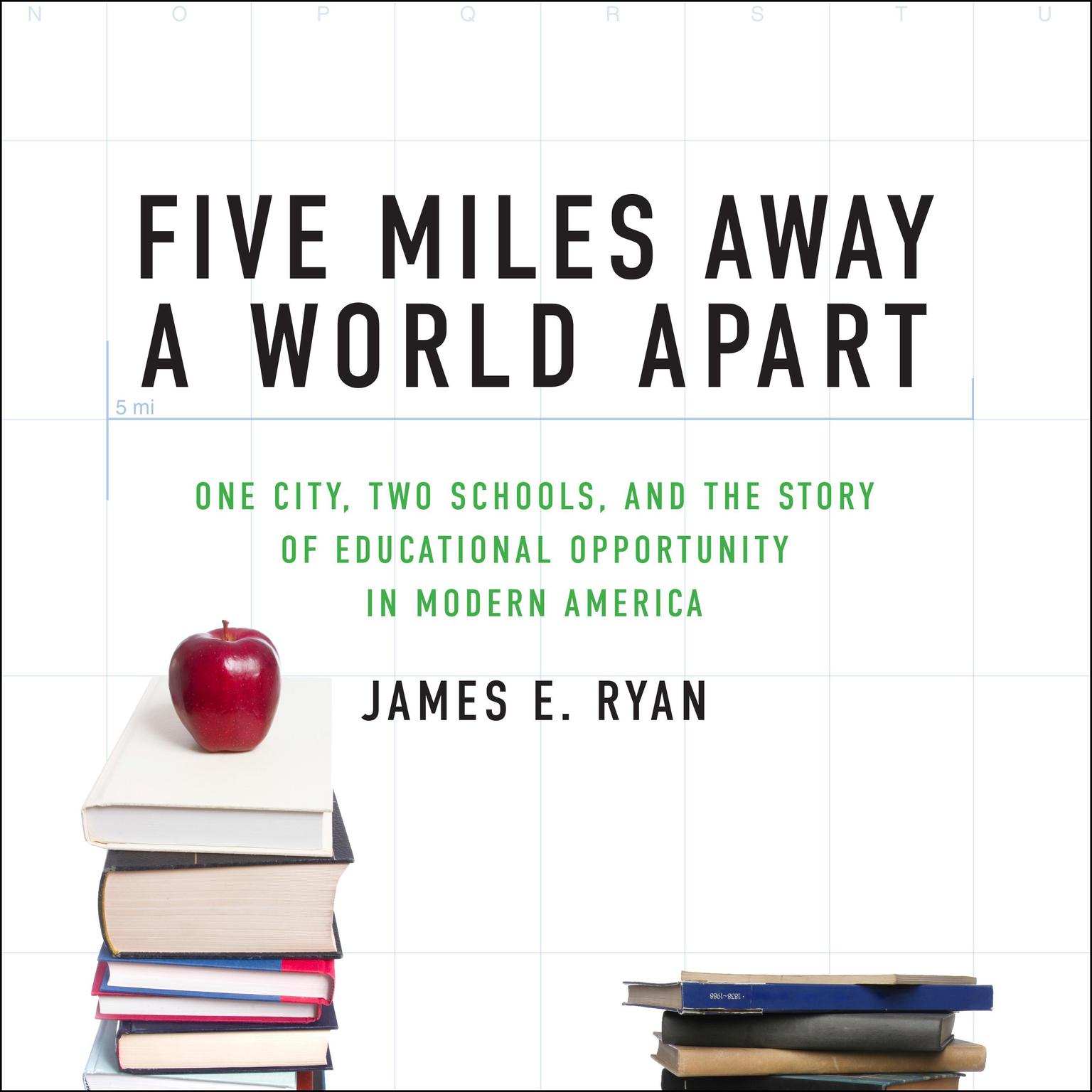 Play Audiobook Sample
Play Audiobook Sample
Five Miles Away, A World Apart: One City, Two Schools, and the Story of Educational Opportunity in Modern America Audiobook
 Play Audiobook Sample
Play Audiobook Sample
Quick Stats About this Audiobook
Total Audiobook Chapters:
Longest Chapter Length:
Shortest Chapter Length:
Average Chapter Length:
Audiobooks by this Author:
Publisher Description
How is it that, half a century after Brown v. Board of Education, educational opportunities remain so unequal for black and white students, not to mention poor and wealthy ones?
In his important new book, Five Miles Away, A World Apart, James E. Ryan answers this question by tracing the fortunes of two schools in Richmond, Virginia—one in the city and the other in the suburbs. Ryan shows how court rulings in the 1970s, limiting the scope of desegregation, laid the groundwork for the sharp disparities between urban and suburban public schools that persist to this day. The Supreme Court, in accord with the wishes of the Nixon administration, allowed the suburbs to lock nonresidents out of their school systems. City schools, whose student bodies were becoming increasingly poor and black, simply received more funding, a measure that has proven largely ineffective, while the independence (and superiority) of suburban schools remained sacrosanct. Weaving together court opinions, social science research, and compelling interviews with students, teachers, and principals, Ryan explains why all the major education reforms since the 1970s have failed to bridge the gap between urban and suburban schools and have unintentionally entrenched segregation by race and class.
Download and start listening now!
Five Miles Away, A World Apart Listener Reviews
Be the first to write a review about this audiobook!
About James E. Ryan
James E. Ryan is dean of the Harvard University Graduate School of Education, a former law clerk to Chief Justice William Rehnquist, and the author of one of the premier investigations into segregation in public education, Five Miles Away, A World Apart.




